- Southwest University of Visual Arts strives to be an exemplary force in higher education by providing a setting that prepares students interested in pursuing a future in the visual/communication arts to attain Bachelor's and Associate of Arts degrees and to meet the competitive challenges of an evolving global environment.
School Highlights
Southwest University of Visual Arts-Tucson served 93 students (86% of students were full-time).
The college's student:teacher ratio of 7:1 was lower than the state community college average of 23:1.
Minority enrollment was 63% of the student body (majority Hispanic), which was more than the state average of 61%.
School Overview
Southwest University of Visual Arts-Tucson
(AZ) Community College Avg.
Carnegie Classification
Special Focus Four-Year: Arts, Music & Design Schools
Baccalaureate / Associates Colleges
Institution Level
Less than 2 yrs
At least 2 but less than 4 years
Institution Control
Public
Private, for profit
Total Faculty
13 staff
296 staff
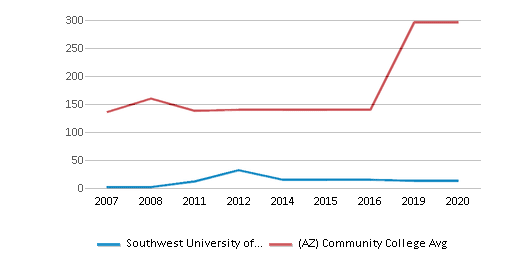
Student Body
Total Enrollment
93 students
3,009 students
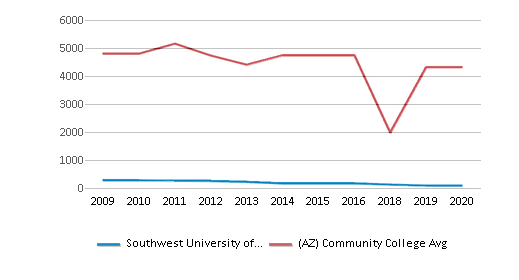
Student : Teacher Ratio
7:1
23:1
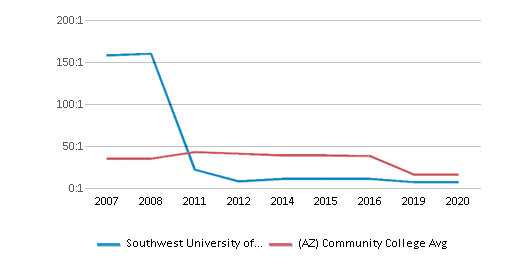
# Full-Time Students
80 students
1,238 students
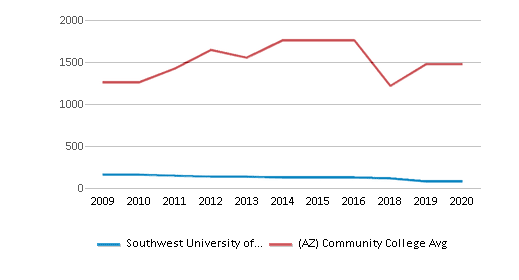
# Part-Time Students
13 students
4,184 students
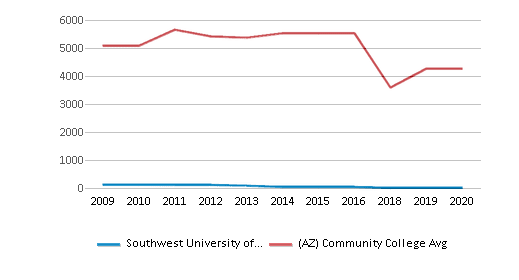
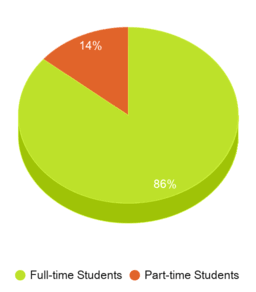
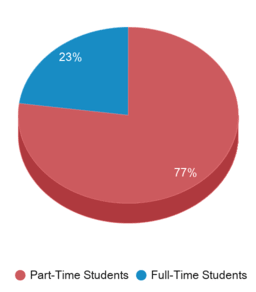
# Enrollment Undergraduate
216 students
339 students
# Full-Time Undergraduate Students
79 students
1,238 students
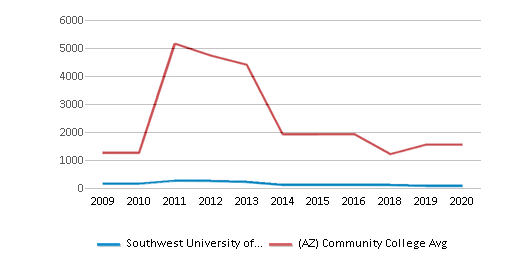
# Full-Time Graduate Students
1 students
66 students
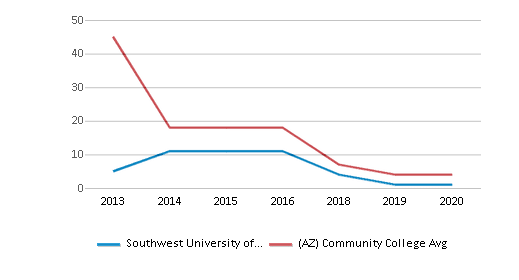
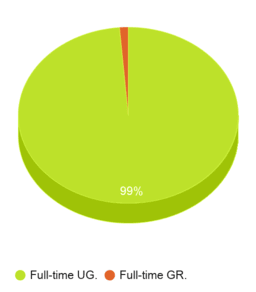
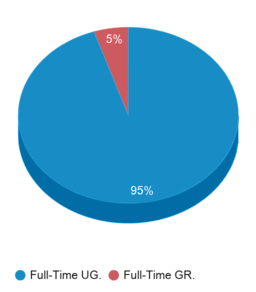
# Part-Time Undergraduate Students
n/a
4,387 students
# Part-Time Graduate Students
n/a
11 students
Total Dormitory Capacity
n/a
250 students
% American Indian/Alaskan
5%
3%
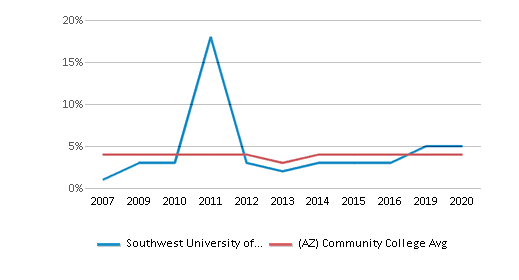
% Asian
2%
4%
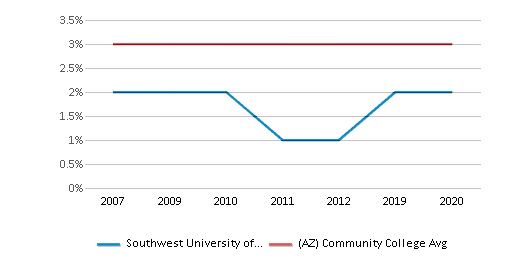
% Hispanic
49%
36%
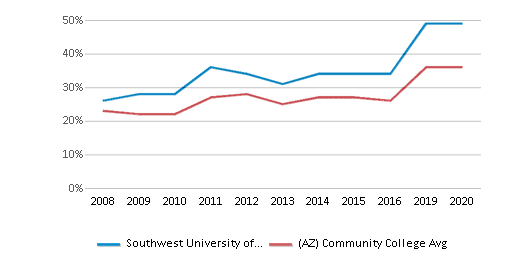
% Black
4%
7%
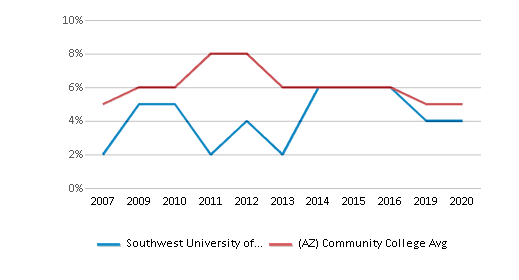
% White
37%
39%
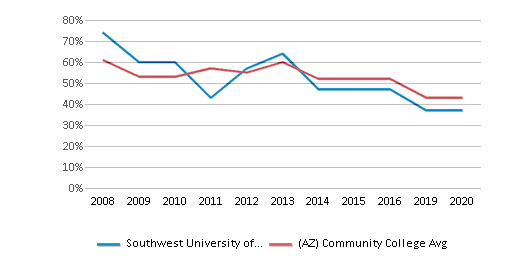
% Hawaiian
n/a
2%
% Two or more races
n/a
4%
% Non Resident races
n/a
1%
% Unknown races
2%
4%
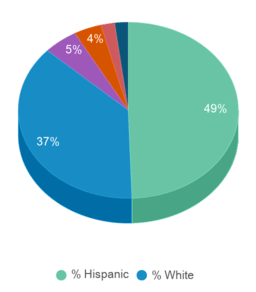
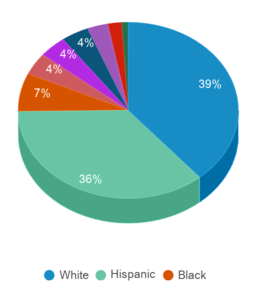
Diversity Score
0.62
0.71
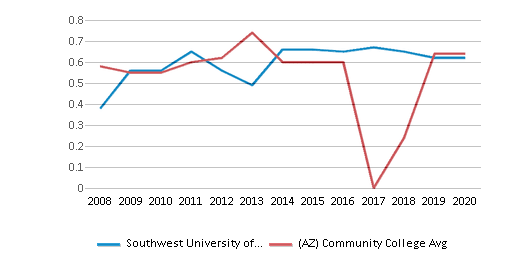
College Completion Rate (Students who graduate in less than 4 years)
n/a
0.4914%
College Completion Rate (Students who graduate in 4 years or more than 4 years)
0.19%
0.6%
Average Graduate Earnings (10 Years)
$30,900
$32,900
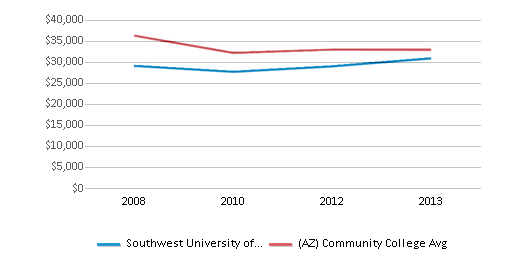
Tuition and Acceptance Rate
In-State Tuition Fees
$23,069
$1,876
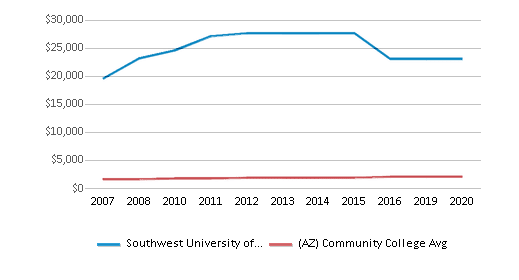
Out-State Tuition Fees
$23,069
$7,132
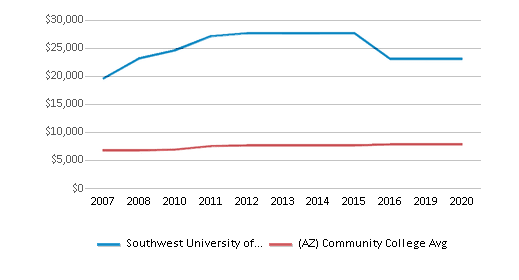
% Students Receiving Some Financial Aid
83%
82%
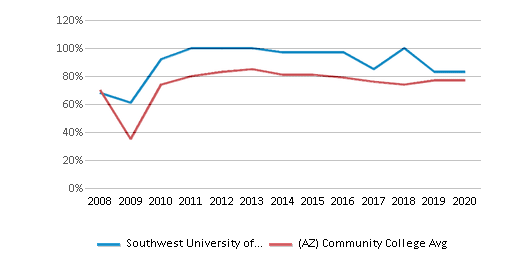
Median Debt for Graduates
$40,625
$9,500
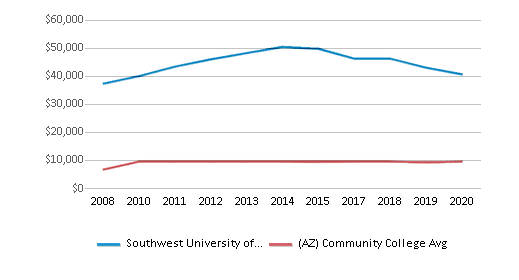
Median Debt for Dropouts
$19,500
$4,750
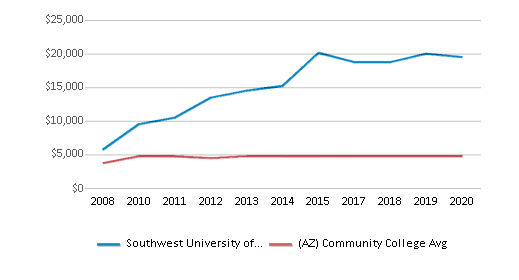
Acceptance Rate
76%
99%
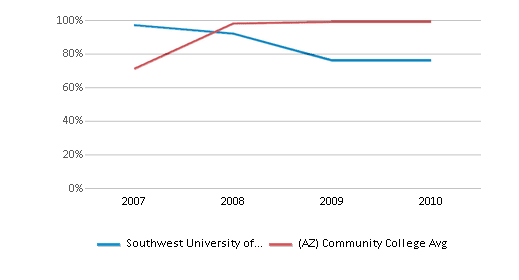
Source: 2020 (or latest year available) Integrated Postsecondary Education Data System (IPEDS) , School Administrators
School Notes
- Southwest University of Visual Arts, formerly known as The Art Center Design College, is a regionally accredited, nationally recognized university offering eight Bachelor degrees in Graphic Design, Animation, Studio Arts, Interior Design, Landscape Architecture, Advertising & Marketing, Illustration, and Photography as well as three Master of Fine Arts in Studio Arts terminal degrees with concentrations in Painting & Drawing, Photography, and Motion Arts.
Frequently Asked Questions
How much does Southwest University of Visual Arts-Tucson cost?
Southwest University of Visual Arts-Tucson's tuition is approximately $23,069 for In-State students and $23,069 for Out-State students.
What is the acceptance rate of Southwest University of Visual Arts-Tucson?
The acceptance rate of Southwest University of Visual Arts-Tucson is 76%, which is lower than the state average of 99%.
Recent Articles

Obtaining Your Bachelor's Degree at a Community College
Explore the evolving landscape of community colleges offering bachelor's degrees, addressing affordability, accessibility, and workforce needs.

A to Z of Community College Certificates and Courses
From business and healthcare to technology and skilled trades, the article showcases the breadth of options available to students seeking to enhance their knowledge, develop new skills, or pursue career advancement.

What is a Community College?
This comprehensive guide explains what a community college is, its history, and its role in higher education. It covers the types of programs offered, differences from four-year colleges, benefits of attending, and important considerations for prospective students, providing valuable insights for those exploring educational options.





